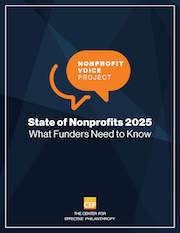Site Search
- resource provided by the Forum Network Knowledgebase.
Search Tip: Search with " " to find exact matches.

Newark is one step closer to its highly anticipated Guaranteed Income Pilot Program following the release of a report by the city, the Jain Family Institute and the Economic Security Project outlining findings and recommendations that would put more cash into residents’ hands.
Mayor Ras Baraka first broached the idea of a universal basic income pilot program at a 2019 State of the City address, saying it would be a welcome experiment in Newark, where more than a third of residents live below the poverty line. Universal basic income is a government benefit that aims to reduce income inequality through direct cash infusion.
More than a year later, the report completed by the city’s special task force is positioning Newark to join a national body of research on guaranteed income. The pilot program would focus specifically on residents struggling with housing insecurity, according to the city.
“What we really want to do is add to the national body of research and put Newark on a national stage,” said Kevin Callaghan, Newark’s philanthropic liaison. “This is Mayor Baraka entering a conversation and saying this is something that we support, and the top recommendation of the report is that there should be a federal guaranteed income policy.”
With the support of JFI and ESP, two internationally recognized research groups, Newark will begin to cast a line to national foundations and donors to fund the pilot. The report estimates anywhere between $4.5 million to $12 million based on three studies, but Callghan put the sweet spot around $5 million for meaningful results.
Estimates say that a Newark family would need $63,000 a year to meet its basic needs, according to United Way of Greater Newark.

In March 2024, Governor Murphy signed into law significant reforms to the ways that New Jersey enforces municipal affordable housing obligations under the state Supreme Court Mount Laurel doctrine. The new law creates enhanced affordable housing opportunities for New Jersey’s low-and moderate-income households, while seeking to streamline the affordable housing development process by setting clear guidelines for determining housing obligations. It is expected to reduce legal costs and judicial involvement. Join Adam Gordon, Executive Director and Emily Devenney, Grants and Development Manager of the Fair Share Housing Center for a conversation about what this new legislation means for philanthropy.
Since the revival and improved enforcement of the Mount Laurel Doctrine in 2015, New Jersey has seen a considerable increase in affordable housing production. However, there remains a substantial shortage of affordable homes in the state, particularly for very low-income residents. The legislation aims to address this gap by ensuring that every municipality contributes its fair share of affordable housing.
Key features of the legislation include a streamlined process for determining affordable housing obligations, codification of methodology for calculating these obligations, increased transparency in the housing development process, and the repeal of the state Council on Affordable Housing (COAH). Additionally, the legislation prohibits wealthy towns from avoiding their housing obligations through regional contribution agreements.
Cost: Free for CNJG Members; $50 for Non Member Grantmakers
Adam Gordon is the Executive Director of FSHC and leads FSHC’s coordinated strategy of organizing, litigation, and policy development to advance racial, economic, and social integration throughout New Jersey and the United States. Since joining the organization in 2006, he has worked to implement the Mount Laurel Doctrine which has created over 70,000 affordable homes in historically exclusionary NJ communities, litigated the largest federal fair housing case in American history, and worked to make federal disaster recovery policy more equitable. Under his leadership FSHC has secured the passage of the first statewide Fair Chance in Housing Act to limit discriminatory tenant screening policies and a landmark $305 million fund to accelerate affordable housing development. Gordon holds a B.A. and J.D. from Yale University.
Emily Devenney joined Fair Share Housing Center as the Grants & Development Manager in January 2024. She comes with experience in fundraising and community organizing, and strong connections to South Jersey, where she was born and raised (and likely will never leave). Emily has a B.A. in Economics and a Masters of Public Policy from the University of Massachusetts Amherst and a Certificate in Fundraising from Villanova University.
Webinar Video
This “How to Collect and Share DEI Data” guide is a resource for the field and has been written with nonprofits who want to start collecting their organization’s data in mind. The questions and choices of answers have been carefully considered with expert partners – CHANGE Philanthropy, Equity in the Center, and RespectAbility.
